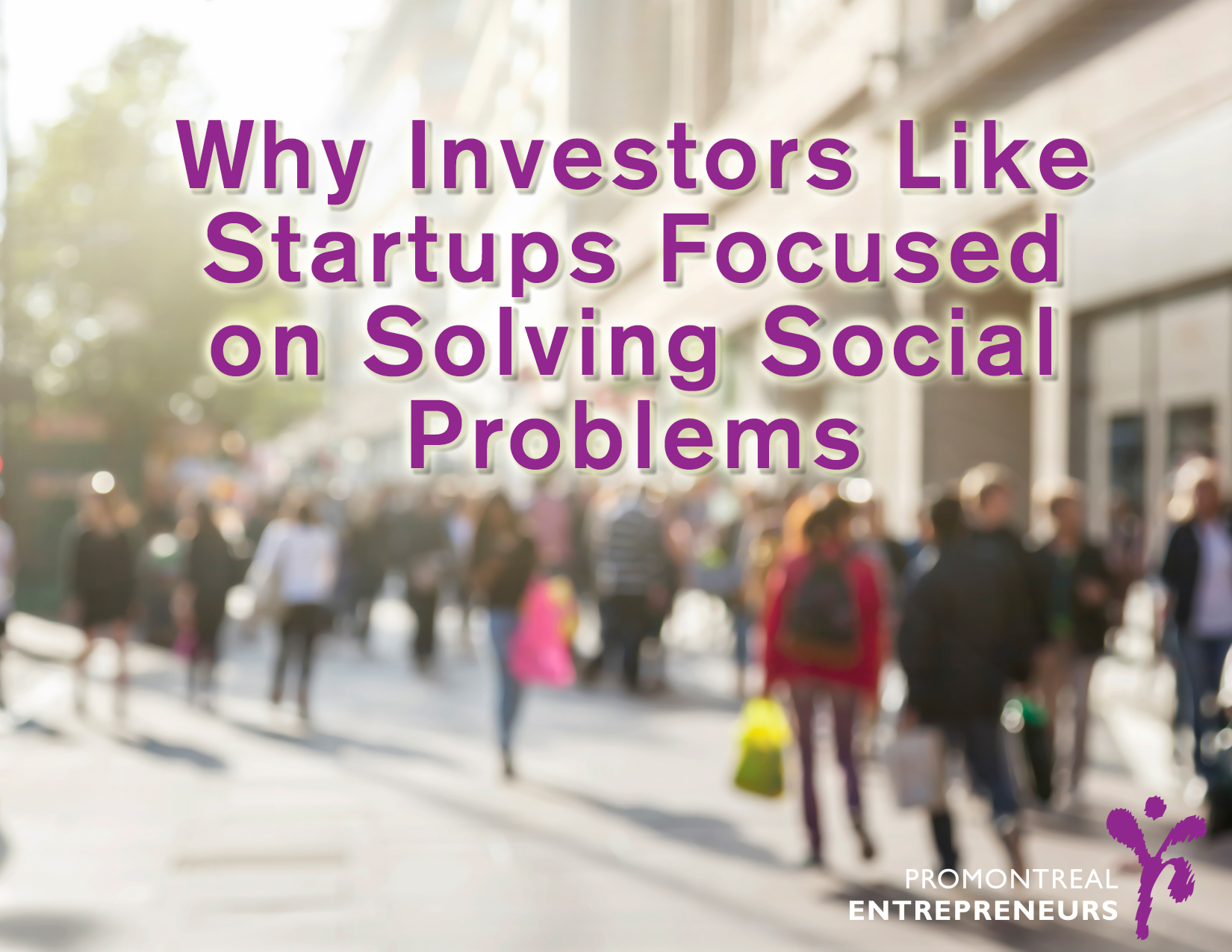The social impact of businesses has been held to the highest of regards in the past decade. Part of the reason for that is millennials have grown up with a more socially responsible mindset than previous generations. Though this has now become today’s norm, many entrepreneurs have gone the extra mile by making solving social problems their main focus. Companies such as Thread International, TOMS, Belu Water, and CellInk are just a few example. With unfortunate social problems making news headlines, one thing is for certain, solving social problems has become what the corporate world would refer to as “good business”.
An uneasy relationship has always existed between investors and entrepreneurs when social problems were in question. If you planned on utilizing socially friendly practices the hope was that it did not excessively affect your profit margins, and if you’re main focus was solving a particular social problem the worry was that you wouldn’t be making enough revenue. All this to say that many investors were hesitant to put too much focus in such businesses. However, with changing societal climates, we are in the midst of a shift. What we see today is that investors no longer have to choose between money, and their values. Hence, the rise of sustainable investing. The reason for its rise in popularity amongst interested investors is simple. People want to make a difference, and figuring out which companies are truthful to their social initiatives has become easier to monitor.
Sustainable investing is a term for investment approaches that consider environmental, social and governance (ESG) factors and their impact. Point in fact, after the controversial era of banking secrecy, sustainable investing has come to the forefront and become one of the fastest growing segments in finance. It is an opportunity to make money and make a difference in the world. By acknowledging its importance and popularity, organizations have further facilitated and incentivized investments in companies focused on solving social problems. For instance, PME funded company Co-Power, identifies energy efficiency projects that generate, or are expected to generate steady, predictable revenue streams by either selling clean power or by reducing energy consumption.
With societal consciousness becoming of increased importance in today’s corporate culture, investors have begun to fish out companies promoting such agenda simply for positive PR. Genuine social impact companies integrate doing good into everything they do. Successful social impact ventures balance for-profit work with community-oriented resources. Failing to do so diminishes credibility and increases customer mistrust. Therefore, entrepreneurs should make a habit of working with institutions and platforms that help verify and certify social impact, examine their supply chain, look for like-minded investors, and build a team that understand the importance of its principles. Act on your beliefs instead of just talking about them.
Making the world a better place and making money can go together. Startups focused on solving social problems endure many challenges that other businesses might not. However, it is important to remember that this is a better time than ever before to appeal to investors. Assuming millennials continue to make social responsibility a priority when it comes to where they work, what they buy, and whom they support, it is safe to say that many investors out there are open and willing to contribute to a greater good.
 Email This Post
Email This Post



